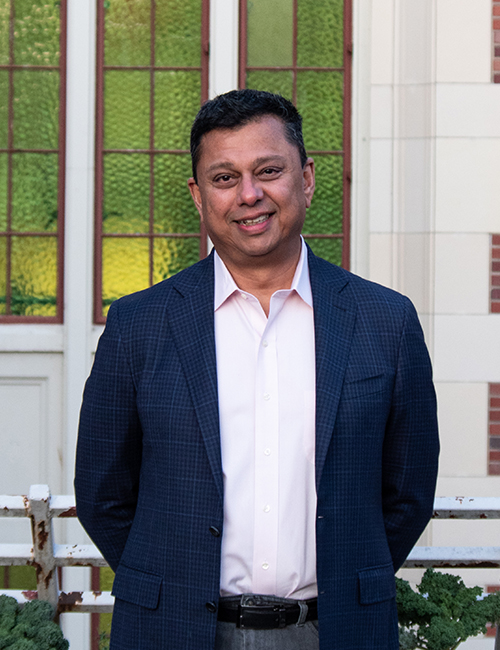At this point in the pandemic, it is clear that vaccination against COVID-19 is a powerful tool in preventing hospitalization and death. But for some people who are particularly at risk for worse outcomes from the virus, like people living with HIV, vaccination is even more important.
Despite mounting evidence showing the importance of COVID-19 vaccination, many groups, including people living with HIV, have not been vaccinated to the full extent of public health recommendations. The reasons behind this gap are not well understood, leading the CIHR Canadian HIV Trials Network (CTN) to launch CTN 328-1, a survey-based investigation to document the factors that affect COVID-19 vaccine confidence and uptake among people living with HIV.
Vaccine confidence is affected by many different factors, like political leanings, age, education, ethnicity, income, gender, and religious beliefs. Vaccine uptake can also be affected by social norms (behaviours that are seen as “normal”) and by health literacy (a person’s ability to access, understand, appraise, and apply health information).
In people living with HIV, vaccine confidence may be affected by how sure a person is that the vaccine will protect them, their perceived risk of COVID-19–related illness, and experiences of stigma and mistrust of the medical system.
CTN 328-1 features a 15-minute online survey that covers a wide range of factors thought to affect vaccine uptake. The study is led by the CTN’s Dr. Cecilia Costiniuk and CHÉOS Director Dr. Aslam Anis, who also serves as the National Director of the CTN.
Preliminary results: Understanding the drivers of COVID-19 vaccine uptake in people living with HIV
Over 200 people across Canada have participated in CTN 328-1, which is a sub-study of CTN 328, a cross-Canada study to assess the immune response of people living with HIV to COVID-19 vaccination. The preliminary results were recently presented at the annual Canadian Association of HIV Research (CAHR) Conference.
“We found that 85 per cent of people we surveyed had received at least one dose of vaccine,” said Dr. Costiniuk, an Associate Professor in the Department of Medicine at McGill University. “Our preliminary analysis showed that the odds of getting vaccinated increased with increasing age — this is encouraging because we know that age is associated with worse outcomes from COVID-19.”
Survey respondents were asked whether or not they agreed with the idea that vaccination was important to protect the health of other people in the community, and whether they felt it was important to protect themselves.
The analysis showed that, in addition to the desire to protect themselves, individuals were vaccinated for several other reasons, including the desire to protect their communities, a finding that Dr. Anis has seen for other vaccine-preventable diseases.

“The power of altruistic motives, prosocial behaviour, and social norms has been noted in a range of different studies and areas. In this case, people may be getting vaccinated because they care for others, but also because helping others makes them feel good or because they want to align with their peers,” he said. “We are also seeing this play out in real-time with masking to prevent the spread of COVID-19.
CHÉOS Program Head of Clinical Trials Dr. Joel Singer, who led the analysis along with biostatistician Hong Qian, noted that there was a high correlation between respondents getting vaccinated to protect others and to protect themselves, but that more people indicated a concern for their communities.
“It could be that people living with HIV may know other people living with HIV who are at particular risk from COVID-19, so they might be motivated to get the vaccine in order to protect their friends,” he said.
The researchers also found that people who thought the pandemic would linger were more likely to get vaccinated compared with those who did not feel the pandemic would last much longer.
There’s always more to be learned
While this preliminary analysis offers some interesting threads for the research team to follow, there are questions the group can’t answer without more study participants.
The researchers didn’t find any effect of sex, education level, or ethnicity on vaccination, but the current low recruitment for many of these groups means the researchers can’t say anything definitively.
“We need more participants in order to study our findings in more depth,” said Dr. Costiniuk. “In particular, more survey respondents from African, Caribbean, and Black communities, and Indigenous groups, will help us understand if there are community-level factors that might enhance or hinder vaccine confidence.”
Dr. Costiniuk and her team are also interested in hearing more from people who are transgender or intersex, people from outside of Ontario, and those who decided against getting vaccinated for COVID-19.
“Having a diverse group of survey respondents will allow us to gather a full picture of the factors that affect vaccine confidence and hesitancy,” she added. “Ultimately, we will use this information to inform new approaches to improve vaccine uptake in people living with HIV in Canada.”
If you would like to participate in this study, you can complete the survey here. For more information about the study, contact the team at HIVCOVsurvey@hivnet.ubc.ca.



